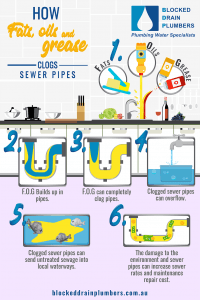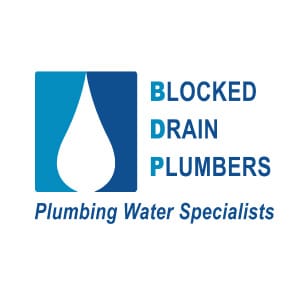Blocked Sewers And Blocked Drains
Blockages
Experiencing a blocked pipe or blocked drain is a very unpleasant situation as all the waste water in your household is prevented from leaving it.
When water comes into your house, it is used in various fixtures as sinks, baths, showers and toilets. When you are using a fixture, for example flushing the toilet, the fixtures is emptied into a waste pipe and then it goes into the sewers and treatment works. Then the water is cleaned, treated and brought back to streams and local rivers.
Some of the most common signs of blocked drains are:
– Slow flushing of the toilet.
– Slow draining of baths and sinks.
– Nasty smell that is coming from the drains.
When there is a blockage in the system, the wastewater won’t flow away from your household and it might back up from a fixture and thus flood your home.
The sewers are designed to receive only the water from your fixtures plus toilet tissue and human waste and you should keep in mind that all other things must be thrown away in the bin.
Some of the most common causes of blockages of Blocked Drains are
– Sanitary items as towels.
– Wipes even though some might say they are “flushable”.
– Leftover food, oil and fat.
If you want to keep your drains flowing properly
If you have any leftover food, oil or fat, leave it to cool down and throw it in the bin.
All sanitary items as nappies and wipes should also be thrown in the bin, instead of flushed in the toilet.
All kinds of solvents, chemicals, paint or engine oil must be brought to your local recycling site or refuse.
What should you do when you have a Blocked Drains problem?
It is very important to remember that we are fixing and cleaning the pipes that are bringing the waste water from your “street” to our treatment works. All property owners are responsible for the internal plumbing systems and the pipes that are connected to our sewers.
Some of the most common situations where the responsibility lies with the owner of the property are when there is not flooding in the area; you don’t share a drain with other properties and when only one property has blockage problems.
On the other hand, it might be our responsibility if there are more than one property which have blockage problems or when the problem is external to your property boundaries.
Throw it in the bin, not in the toilet!
Improper things, flushed down the toilet or down other features, are some of the most common causes of blockages. For example, if you pour down the sink some leftover oil or fat, they will set hard and thus create stinking and pipe-blocking in your pipes or in your streets’ pipes.
Another thing that is a “definite no” for throwing down the drain are the wet wipes as they are plastic-made. Toilet tissue breaks down, but the wipes do not. Then they attack to any fat in your pipes and block your system. And if you experience blocked drains, you can sometimes experience those things coming back through your fixtures.
We want you to keep in mind only one thing, if you are not flushing water, toilet paper or human waste, throw it in the bin instead of in the drain.
Sewer Flooding from blocked sewers
One of the most unpleasant situations is a sewer flooding and we always treat those situations with the highest priority possible. If the problem is in our sewers -> , we will clean the affected areas completely free. We usually do this on the same day but sometimes this might not be possible if the affected area is larger or is the waters have not completely drained away.
Read this for more info on Melbournes sewerage system
Watch this clip for how sewer problems can occur.Sewer flooding causes
There are a number of things that increase the pressure on the sewerage networks as climate change, paving over green spaces and population growth. The situation is even made worse as people are flushing many improper products down their drains and thus they are increasing the possibility of a sewer flooding.
What this means is that when there is a heavy storm, the sewer will receive bigger flow and the possibility of reaching its maximum capacity is greater.
When the system gets overwhelmed, there is a possibility for the sewage to overflow from gullies and manholes and thus it might flood rivers, gardens and lands. And the worst case scenario is when the sewage floods your home.
What should you do if your property is flooded by sewer water?
One of the most important steps when your property if flooded by sewer water is to contact your insurance provider immediately. Failing to do so may will affect the claim you would need to make for damages.
The second most important thing you should do is to turn off your electricity, water and gas at the mains. You should not turn them back on until all systems have been inspected by a professional.
Don’t let pets and children to go into the flooded area as probably it will be contaminated with sewage and there might be dangers in the water.
Don’t lift any manhole covers in order for the water to drain away as this can worsen the situation.
Don’t throw away items that are damaged until your insurance provider has them all inspected.
After the inspection is concluded, you should have all surfaces disinfected and make sure that the property is properly ventilated. When you are clearing up your house, you should always wear gloves and cover even the smallest cuts you might have.
You should throw away all food that has been in contact with the flood water.
You should immediately call a doctor, if you start experiencing symptoms as vomiting or diarrhea.
There are situations in which we are using tankers to minimize the impact of the sewer flooding. They usually offer limited solution from the flooding symptoms and if they are used for longer periods, they might cause disruption and noise. Whenever the situation allows it, we use temporary pumps.
Tankers are used mainly when we need to better protect our clients from internal flooding instead of trying the pump away the groundwater and river water as in those cases, the tankers do not have a significant impact.
It is important that people make contact with their local council/ local flood authority to get more information and advice about sandbags and toilet facilities.
We usually use sandbags to protect our sewage treatment sites and pumps from the floodwater in order to reduce its impact on your properties but it is not our practice to offer those as a protection for the homes of our customers.
We know how unpleasant and inconvenient it is when people are unable to use their toilet facilities properly so we always work alongside the local authorities to help in the restoration of those.
Pipes that are misconnected
What exactly are the surface and foul water sewers?
Generally speaking, the surface water sewer is carrying rainwater that is uncontaminated to local streams, rivers and “soakaways”, while the foul sewer is carrying wastewater that is contaminated to a treatment sewage works.
The surface water sewer is disposing of rainwater from areas like driveways, roofs, patios and roads and is transferring this water to a local watercourse. The foul water sewer, on the other hand, is disposing of water, coming from toilets, showers, sinks, dishwashers and similar appliances and is transferring it to the local sewage treatment works.
There are situations in which you might be polluting the environment due to those misconnected pipes.
Signs that tell your property might be misconnected are waste pipes which are falling in a drainage gulley that has the rainwater drainpipe falling into too.
Another sign is that if you have a manhole through which your foul waste is running, you might have a surface pipe that is running in parallel. If you see that this pipe is open inside the manhole and then the foul pipe gets blocked, you might see wastewater overflowing into the surface water pipe.
Sewer system threats
We have had experience in dealing with waste that is incorrectly disposed of through toilets and drains and those materials are mostly ones that are hard to remove or that don’t break down in a natural way. As a result of those factors, the sewage treatment works get polluted and experience problems.
Every year we remove more tons of debris from our sewage treatment works. Some of the most nagging problems are the cotton buds as because of their small size, they are able to pass through the smallest and finest screens in our processes for sewage treatments.
Products as cotton buds, nappies or sanitary items that are disposed of down the drains cause very serious sewer blockages. Those blockages can lead to sewer flooding in your property and sewage spillings into streams and rivers.
Fats, Oils and Grease and blocked sewers
There has also been an increase in the amount of fat which is disposed into the sewers. Blockages are caused by oil, fat or grease. Those blockages can cause sewer flooding to buildings and roads and because of those situations, we support the installation of fat traps or the use of services for fat collection or recycling.
Fats, as well as the previous mentioned sanitary items and other products, should be disposed of in the bin and not in the toilet and drains.

Blocked-Drain-Plumbers-Fats-Oils-Grease-2018
Manholes
You should keep in mind if a manhole has its cover removed or damaged, it can be very dangerous.
If you notice an open manhole or a manhole with a broken cover, you should contact your council immediately, otherwise contact us if you cant otherwise. We will reach the site, secure the area.
Rodents
We know that if there are rodents present at your property, this could be a very unpleasant situation. If there is a rodent infestation present in the sewers and those are affecting your property, we will work with local authorities to solve the problem.
Rodents’ causes
The sewers are the perfect habitat for rats to use as a “get through” network or to nest into. And if there are food premises draining into those sewers, this could be an encouragement for the infestation of rodents. Worse, if there are any problems or defects in the sewer, those rodents can more between the ground – above and below.
Rodents become more recurring:
The recovery of population of the rats is very high so depending on the successful baiting, the population can recover in a timeframe of 6 months.
Rats have the ability to gnaw through most of the materials and thus they are able to damage the sewer lines and worsen the defects or problems.
What you should do when you see that there is a rodents’ infestation is to call your local authorities as they will be best able to identify the “starting point” of those rodents.
If the rodents are coming from above the ground, you have to work with your local authorities as they are able to organize the proper baiting.
If you need professional help contact us on 0412 738 874 or leave a message.
We are the leading sewer plumber in Melbourne as well as emergency plumbing professional.
Furthermore, if you have a blocked drain problem contact us right away!
Helpful details for a Blocked Drain and Emergency Plumber situation:
Triple zero – 000
City of Melbourne – Floods and Storms
VicWater
Yarra Valley Water
Victoria State Emergency Service


